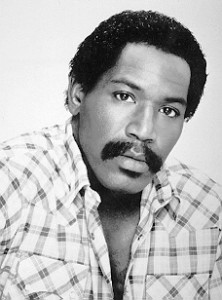Bubba Smith dies at 66
A few thoughts about Bubba Smith, who died yesterday at 66. He may be best remembered today as an actor and television pitchman. But he made his name on the football field, first at Michigan State, then as a Baltimore Colt. Andy Barall writes about pro football history for The Fifth Down.
In the late 1960′s and early 1970′s, there wasn’t a more imposing sight in football than Charles Aaron Smith, better known as Bubba. Before a terrible knee injury in 1972, Smith was one of the N.F.L.’s best all-around 4-3 defensive ends. When he wanted to, he could dominate.
Smith was a two-time all-American for the powerhouse Michigan State teams of the mid-60′s. The Baltimore Colts, with a pick acquired in a trade with the expansion New Orleans Saints, made him the first overall selection of the 1967 draft. Three of his college teammates: Clint Jones, George Webster and Gene Washington, were also among the first eight picks that year.
Smith was officially listed at 6-7 and 265 pounds, but he probably played at much closer to 300, especially early in his career. He was an unusual combination of size, speed, power and quickness. Having such long arms didn’t hurt either, particularly when the quarterback tried to throw to his right.
Because offenses usually lined up with the tight end on his side, Smith, at left defensive end, had to play the run first. On passing downs, he wasn’t just a bull rusher. He was fast enough to beat the offensive tackle wide to the outside and had good enough lateral movement to beat him with a quick move to the inside. Once that tackle was slightly off-balance, it was usually all over. The offense frequently had to keep its fullback in to give the tackle help. That allowed the linebackers to get greater depth in pass coverage.
There aren’t many individuals in football who’ve inspired unforgettable chants. Fewer still who did so while playing defense. And there’s only one who had a verb all to himself.
‘Kill, Bubba, Kill! Kill, Bubba, Kill!’
At Spartan Stadium in East Lansing, Mich., that cry rang out throughout Charles Aaron ‘Bubba’ Smith’s tenure on the defensive line. He was 6-foot-7, 285 pounds at a time when college linemen may have tipped the scales at about 230. He was quick, strong, all but unstoppable, and truly terrifying to opponents whose job was to get in his way.
Bubba Smith was found dead in his Baldwin Hills, Calif., home Wednesday, at age 66.
Smith was the first selection overall in the 1967 NFL draft, played nine seasons, made two Pro Bowls, and was a stalwart with the Baltimore Colts teams that lost the 1969 Super Bowl, won it two years later, and allowed just 140 points in 14 games in the 1971 season.
He played five years with Baltimore, two each with the Oakland Raiders and Houston Oilers, but he made his biggest mark in the green uniform of the Michigan State Spartans.
He grew up in Beaumont, Texas, playing high school football for his father, coaching legend Willie Ray Smith at Charlton-Pollard High School. Duffy Daugherty recruited him to come to Michigan State, where Daugherty was building a powerhouse featuring many southern African-Americans whose home-state universities were either still segregated or trying to remain so. Both of the captains of the Spartans’ 1966 squad were African-American, as were eight of the starters on defense and – unusual for the time – so was the quarterback. Michigan State won a share of the national title in 1965, and should have in 1966 as well.
No one had ever seen an athlete quite like Bubba Smith before. He had the size to dominate with power, but the speed to run sprints with the team’s ball-carriers. MSU’s track coach Fran Dittrich quipped: “I’d like to have Bubba on the track team, but he’s too big to run in one lane.”
“‘Yo, Bubba, can we try that again … except this time try not to kill the guy!’
I remember giving that direction to Bubba Smith on the set of ‘Blue Thunder’ in 1984.
I was teasing him about rough-housing a stuntman bad guy at the end of a chase, but hey, I was talkin’ to one of the greatest – and baddest – defensive ends in the history of the NFL, a Super Bowl V champ.
This was Bubba’s first role as a series regular and he played a detective partnered with another NFL legend Dick Butkus. They both did the police legwork on the ground to support the chopper team in the sky starring James Farentino and Dana Carvey in the Blue Thunder.
Of all the actors I have ever had the privilege of working with, I can truly say Bubba is high on the most memorable and fun list. He was a special soul, a gentle giant, as kind and caring on a film set as he was feared and terrifying to every quarterback that ever faced him on the gridiron.
A few months after directing him, I invited Bubba to my wedding. I recall he was mobbed by all the kids who knew him from TV as the baddest football star, and now he was their gentlest pied piper hero.
Farewell, my friend.” – Guy Magar said.
